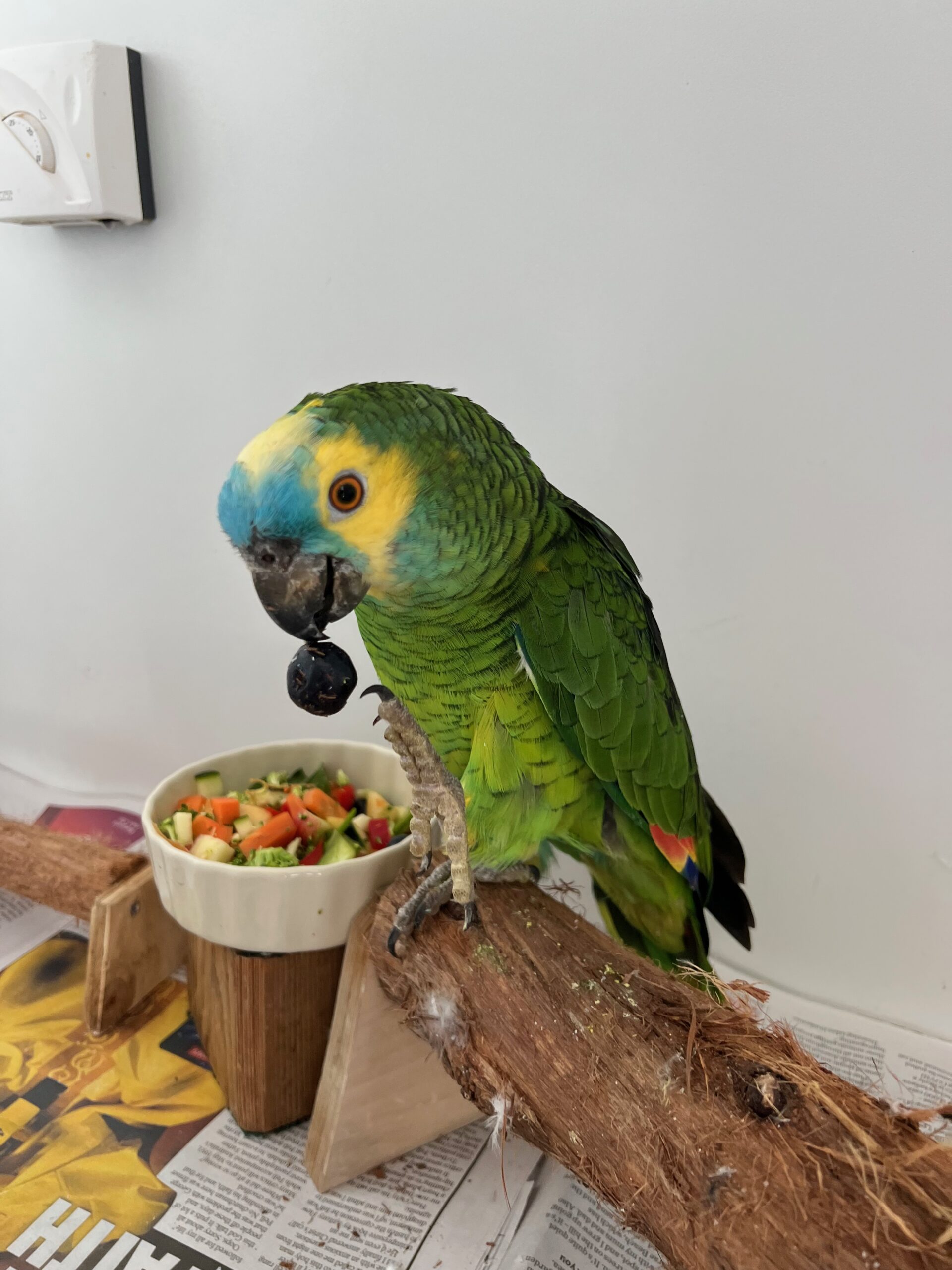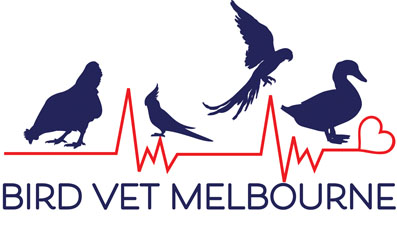Feeding Pet Birds

Nutrition in a Nutshell - the five bird food groups!
- Dark green vegetables – eg Silverbeet, Spinach, broccoli
- Limited Seed -making up less than 1/3 of the diet. (Gradually reduce seed over 6 weeks.)
- Pellets – like Harrison’s , Pretty bird, Vetafarm and Passwells.
- Low fat low sugar low salt human foods – eg Oats, Weetbix, rice
- Certain specific species also need fruit added daily. e.g. lorikeets, conures, eclectus parrots. Nuts are also recommended as a small part of the diet for Amazons, macaws and cockatoos
Why an Exclusively Seed Diet Is A Bad Idea...
There is a common misconception that birds only need seed. While individual requirements will vary, for most pet birds, especially parrots and budgerigars, a seed diet is deficient in over 30 nutrients (see below), including vitamins A, D3, E and K; minerals such as calcium; lysine, methonine and Omega 3 fatty acids. Seeds are also too high in fat. While seeds may be palatable, feeding your bird an exclusively seed diet is like feeding your children McDonald’s: occasionally is okay but fed every meal it is very likely to lead to malnutrition and ill health.
While requirements will vary between different species, different individuals and different life stages, as a general principle the avian vets at Bird Vet Melbourne recommend parrots and other seed/grain eating birds be fed diets comprised of
- some seed, preferably NOT supermarket brands like Trill. Go for a reputable seed brand sold at a pet store or grain supply store.
- some pellets or formulated food, suitable brands are generally well balanced and nutritionally sound. While not all birds will eat these foods, most birds can be converted using strategies suggested below.
- a variety of fruit and vegetables (especially vegetables high in vitamin A). Again not all birds will eat these but some techniques to encourage consumption are listed below.
- some nuts and healthy human foods
For diets, one size doesn’t fit all, any more than a single diet would be suitable for every human at every life stage. General principles need to be adapted to individual circumstances and preferences, our avian vets are able to help with this.
Pellets and Formulated Bird Diets
Pelleted food have been developed for birds by a number of different manufacturers to address the deficiencies in a seed only diet. These are made from a variety of foods including grains, seeds, vegetables and fruits and are fortified with vitamins and minerals, then baked or extruded into pellet or variety of other forms. These provide a more balanced nutritious diet and prevent birds from picking out their favourite food items and leaving the rest. However, many birds, especially those started on a seed based diet, do not readily take to eating a formulated diet and these diets, though generally well balanced, may not be perfect for every bird at every life stage. Neither do they provide the variety and stimulation that many pet birds crave in their diets (after all, eating the same thing day after would be boring for anyone).
Pellets can be considered the “base” of the bird’s diet, comprising 50-60 percent of what the bird eats but we do not recommend pet birds be fed exclusively on pellets. Some brands of formulated diets that we stock include Harrison’s, Pretty Bird, Vetafarm and Paswell. As these diets grow in acceptance and popularity, manufacturer’s are producing lines formulated for particular species and also for health management (e.g. lower calorie diets for weight management).
Nutrient Deficiencies in Seeds*
The following nutrients are low or absent in seeds commonly fed to birds:
- Vitamins – choline, niacin, pantothenic acid, riboflavin (B2), cyanocobalamine (B12), biotin, D3, E, K and folic acid
- Vitamin precursors – b carotene, converted to vitamin A in the liver
- Minerals – calcium, sodium, phosphorus (70% tied up in non-digestible phytates in grains and plant products)
- Trace mineral – selenium, iron, copper, zinc, manganese, iodine, chromium, vanadium, bismuth, tin, boron
- Pigments – chlorophyll, canthaxanthin
- Amino acids – lysine, methionine
- Fibre – (mucopolysaccharide) both soluble and insoluble
- Omega 3 Fatty Acids
*(From Harrison, G et al, Clinical Avian Medicine, Spix Publishing, 2006)
